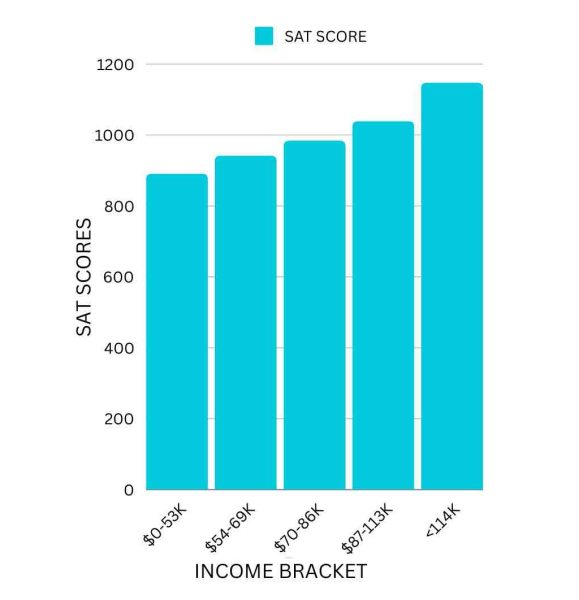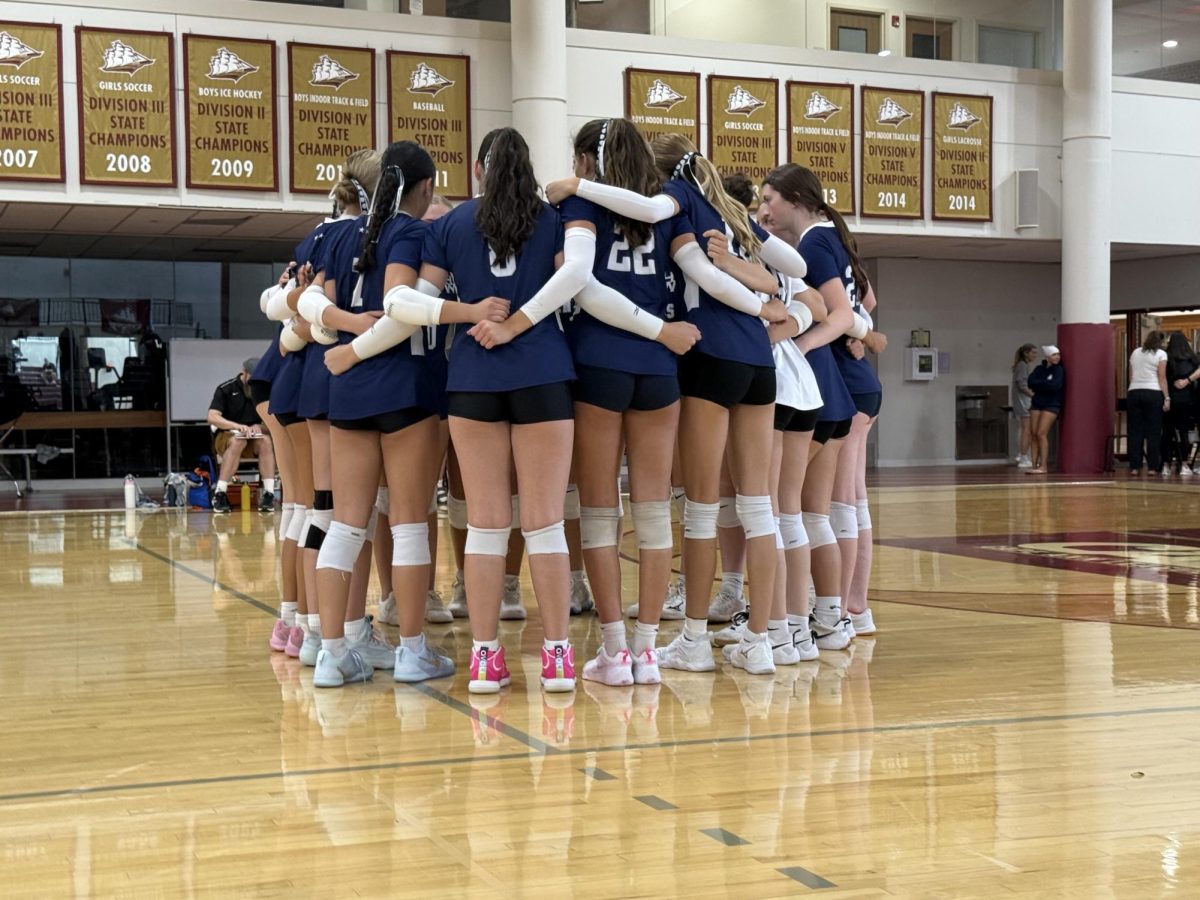During the pandemic, many schools became test-free or optional; however, the SAT is making a comeback as a requirement in the college admissions process. However, the SAT score isn’t necessary and should not be a standard.
Since 1926, the SAT, or the “Scholastic Aptitude Test,” has been the standardized test for students looking to get into the college of their dreams. According to the College Board, over 1.97 million students in the class of 2024 took this test.
Higher Income = Higher SAT Scores

SAT scores depend heavily on the student’s readiness. Conveniently, many private tutors often offer study sessions for exactly what will be on the SAT. However, SAT tutors cost a lot. According to Wyzant, a tutoring site where you can hire tutors, the average SAT tutor costs from $35-60 an hour and can cost as much as $100 an hour. For lots of families, this can be very expensive, which leads to many families opting to skip the tutoring.
This can offer an unfair advantage for those in higher-income families. Collegevine notes that the average SAT score for students with families earning less than $20,000 a year is 970, well below the average score of 1050.
This means that students from higher-income families are more likely to do better on standardized tests like the SAT and ACT. The SAT is a very strong factor in college admissions. Although SAT scores are not necessary during most college admissions, a strong SAT score can be the make or break in terms of whether you will get into your dream college or not.
Students who go to worse colleges typically will have harder chances of getting a high-paying job. This continues the cycle of money struggles that is passed down from generation to generation. To break the cycle is to battle against all odds despite the obstacles being thrown at you.
But do SATs even really predict future success? According to Forbes Magazine, high school GPA is a much bigger predictor of success in college and beyond than ACT and SAT scores. The article notes, “Students with a GPA under 1.5 had a 20% chance of graduating college, up to 80% for those with a GPA of 3.75 or higher, once student background and college characteristics were taken into account.” This is a much higher probability than SAT scores, which shows how GPA is a much bigger predictor of success in college.
This means that students who got a high GPA were much more likely to complete college and lead successful careers than students who scored highly on the SAT and ACT. In fact, a study through Winward Academy found that “ACT and SAT scores reflect neither someone’s IQ nor his or her potential for life-long success.”
Anxiety affects SAT scores
Another big factor in student success during the SATs is test anxiety. Test anxiety, also known as anticipatory anxiety, occurs when students feel very stressed before a test, so much so that it might make them forget some or all of the material that they have been studying.
According to a study by the University of Western Idaho, 25-40% of students report dealing with test anxiety. Test anxiety can play a major part in students’ scores. The National Bureau of Economic Research reports a drop of about 80 points on a 1600-point SAT scale for students with test anxiety vs. students without it. This can present an unfair advantage for students without anxiety, which does not correlate directly with intelligence or future success.
Colleges need to stop using standardized tests as a means for determining a student’s intelligence/capabilities. If you want to end this unfair process, you can sign the petition to get rid of the SATs entirely as a requirement in college admissions. Make your voice heard and make the college admissions process fair for all students.















